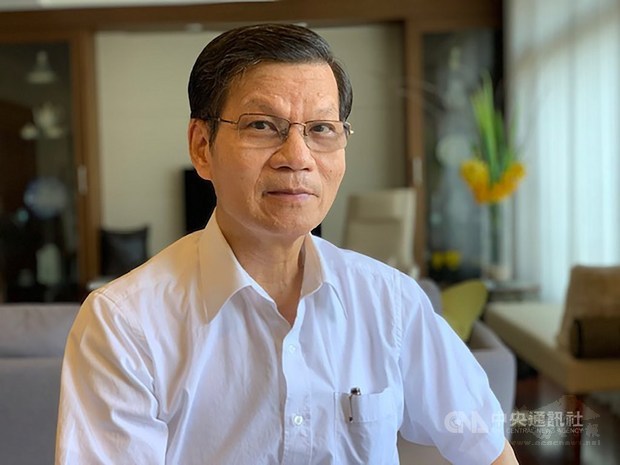
Taipei, July 14 (CNA) Former Academia Sinica President Wong Chi-huey, an acclaimed biochemist, believes the virus that causes the coronavirus disease 2019 (COVID-19) will co-exist with humans for a long period of time because it is more adaptive to the host and less virulent than other viruses such as SARS.
Given the mutation of the virus, "it is not inevitable it will become better at harming people," Wong said in a recent interview with CNA, because for its own survival the virus does not kill its host in most cases.
The virus could have found the best way to live in the people of all races, said the scientist who specializes in glycoscience, and the evidence is that more than 80 percent of those infected with the viral disease show moderate to no symptoms.
"It is possible the virus will be with us for a very long time," he said when being asked about COVID-19, which has infected over 13 million people and taken more than half a million lives around the world since it emerged in China late last year.
The pandemic is still rampant in many countries.
Wong noted that our knowledge of the novel virus, called severe acute respiratory syndrome coronavirus 2 (SARS-CoV-2), and how it is transmitted from person to person is limited.
We don't even know where it came from, he said.
Wong also warned that having no symptoms does not mean an infected person cannot pass the virus to other people, reiterating the importance of taking health precautions.
Speaking of vaccine development in the battle against COVID-19, an area in which he has been involved personally, the 71-year-old Wong, now chairman of the Taipei-based Institute for Biotechnology and Medicine Industry, admitted it is a challenge to develop a safe and efficient vaccine given that the virus continues to mutate.
Citing data from GISAID, a global science initiative and primary source for genomic data on influenza viruses and the novel coronavirus responsible for COVID-19, Wong said the databank has more than 56,000 genome sequences for SARS-CoV-2.
The spike protein on the surface of the virus has 1,300 amino acids, over 800 of which having the ability to mutate, according to Wong. "The challenge is when we produce a vaccine, the virus could mutate again," he said.
Although vaccination is the best way to control the spread of any infectious diseases, "it is not easy to develop a universal vaccine," Wong said, noting that currently the world does not even have such a vaccine against influenza.
A universal flu vaccine is one that is effective against all influenza strains regardless of the virus sub type.
Given the difficulties in developing COVID-19 vaccines, "it is possible the virus will be with us for a very long time. We should be mentally prepared for long-term co-existence," Wong said.